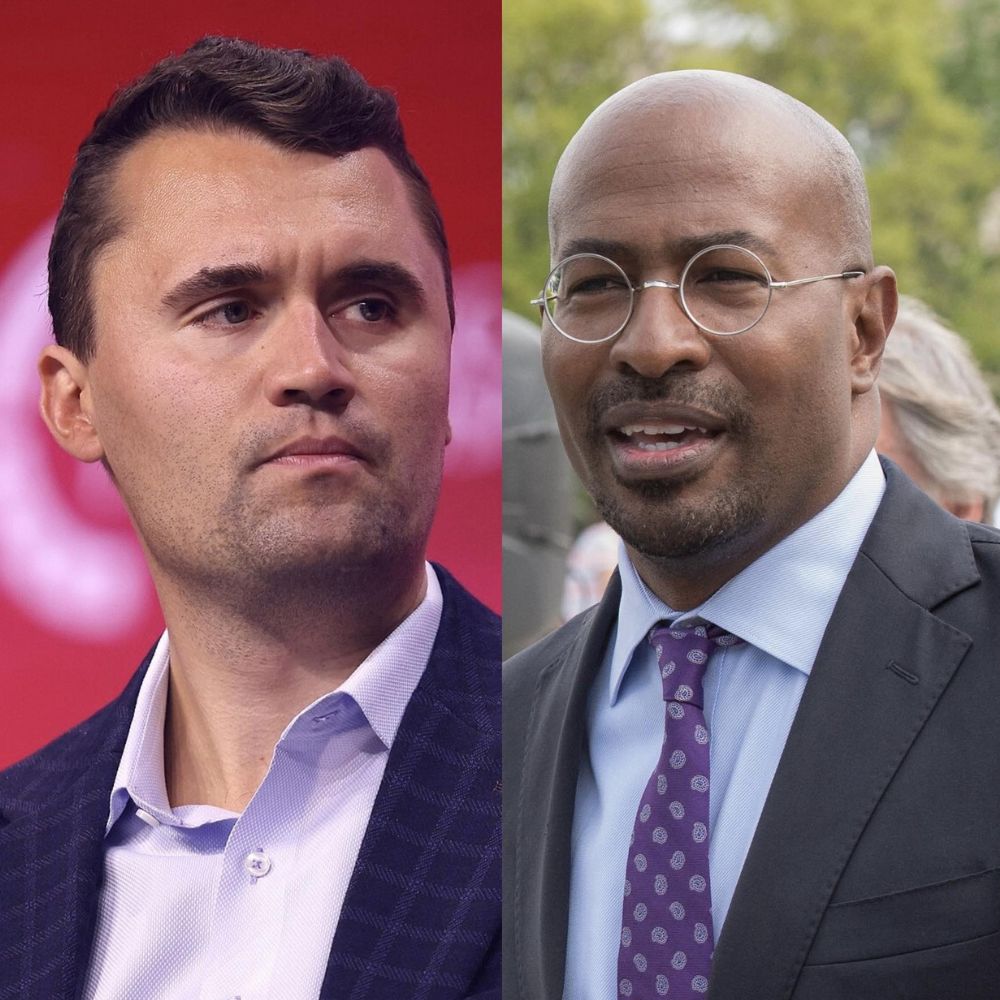Van Jones Shares Final Message From Charlie Kirk — A “Respectful” Chat Shadowed By Past Racist Remarks

The tragic assassination of Charlie Kirk, the founder of Turning Point USA, has sparked a renewed examination of his controversial views on race and civil rights. Kirk, who was shot and killed during an appearance at Utah Valley University, was a polarizing figure in American conservatism, often drawing ire for his remarks regarding Black individuals and the civil rights movement.
A Desire for Dialogue
In an unexpected twist, former CNN host Van Jones revealed that Kirk had reached out to him the day before his death, expressing a desire to have a “respectful” conversation about crime and race. Kirk assured Jones that he would approach the discussion as “a gentleman.” This message highlights a potential willingness to engage in dialogue on sensitive issues, contrasting sharply with the divisive rhetoric that characterized much of his public persona.
Controversial Remarks and Backlash
Kirk’s legacy is marred by numerous statements that many critics argue reveal a deep-seated hostility toward Black people and civil rights progress. In early 2024, he faced significant backlash for a comment made during a podcast where he stated, “If I see a Black pilot, I’m going to be like, ‘Boy, I hope he’s qualified.’” This remark was widely interpreted as perpetuating harmful stereotypes about Black professionals and underscored the racial undertones that often defined his commentary.
His views on the civil rights movement were equally contentious. Although Kirk initially praised Martin Luther King Jr., he later labeled the civil rights leader as “awful” and “not a good person.” At a December 2023 event, he went so far as to call the Civil Rights Act of 1964 a “huge mistake,” claiming it established a permanent bureaucracy that prioritized diversity, equity, and inclusion. Such statements have drawn sharp criticism, with many viewing them as a rejection of essential legal protections for Black Americans.
Dismissive Attitudes Toward Black Suffering
Kirk’s rhetoric regarding George Floyd further exemplified his controversial stance on race. During his 2021 “Exposing Critical Racism” tour, he referred to Floyd as a “scumbag” and dismissed the national outcry following Floyd’s death as “exaggerated” and driven by “corrupt voices.” These comments not only trivialized the suffering of Black individuals but also reinforced accusations that Kirk was insensitive to the systemic issues of racism and inequality in America.
Beyond individual figures, Kirk was vocal in his opposition to broader concepts like white privilege and equity programs. He consistently described “white privilege” as a “myth” and insisted that America did not afford advantages to white citizens. His opposition to Diversity, Equity, and Inclusion (DEI) initiatives was framed as a defense of meritocracy, yet critics argued that this perspective ignored the systemic barriers faced by marginalized communities.
The Impact of Turning Point USA
Kirk’s rise through Turning Point USA provided him with a substantial platform to promote his views to millions of young conservatives. By framing race-based protections and equity programs as attacks on white America, he cultivated a brand centered around grievance politics. While his supporters praised him for being unapologetic and fearless, detractors pointed to a consistent pattern of undermining civil rights and fostering mistrust toward Black professionals.
His untimely death has left a significant void in Republican youth organizing, but it also ensures that debates surrounding race, privilege, and civil rights will remain intertwined with his legacy. Kirk’s views and the controversies surrounding them serve as a reminder of the ongoing struggles within American conservatism regarding race and equality.
Conclusion
Charlie Kirk’s legacy is a complex tapestry woven with threads of dialogue, division, and controversy. His tragic death has prompted reflection on his impact and the broader implications of his views on race and civil rights. As discussions continue, it is crucial to engage with the nuances of his legacy and the conversations he sought to initiate, even as they remain deeply contentious. The debates surrounding his life and work will undoubtedly influence the future of conservative discourse on race in America.